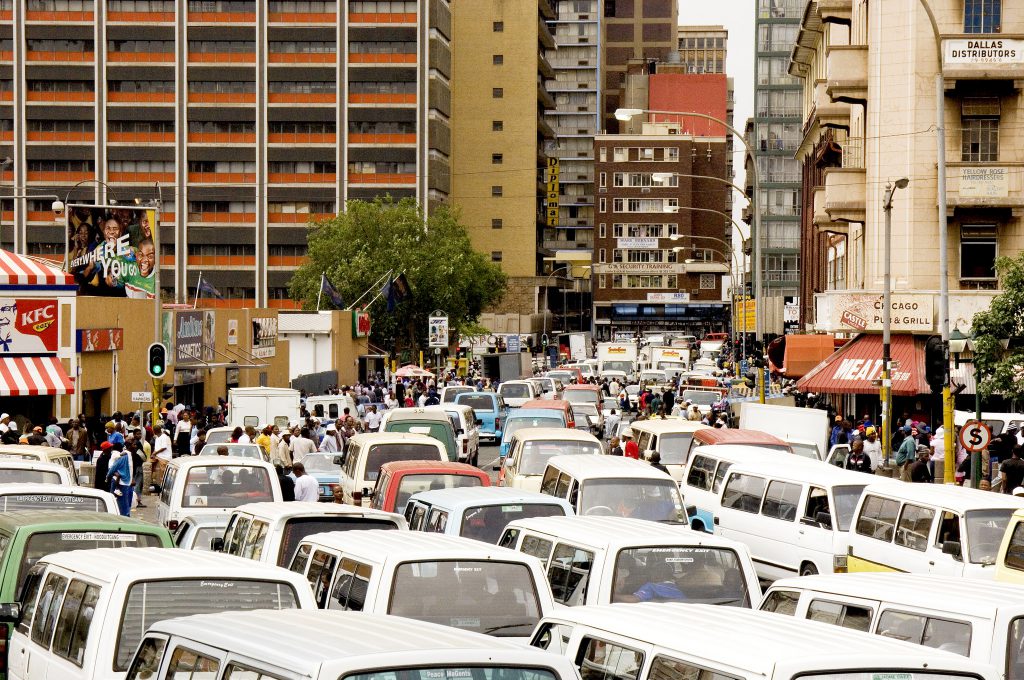Sunday Times Green PR
How Fewer Parking Spaces Could Transform Our Cities
South Africa is an increasingly urbanised nation with more than 60% of the population now living in cities which are typically sprawling and car-dependent.
Gustavo Petro, a Columbian politician, famously said that a developed country is not a place where the poor have cars, but rather one where the rich use public transportation. In this regard, South Africa has a long way to go both logistically and culturally, but the catalyst to change may come in the unlikely form of parking regulations.
The availability of parking encourages private car use in cities – the supply and cost of parking are factors in whether or not people choose to own and drive a car.
At the same time, parking plays an important fiscal role in that parking fees and fines provide a substantial revenue base for local municipalities. Revenue that is generated in this manner can be reinvested directly into cities and used for urban upgrades and improvements.
South African cities have been designed in such a way as to facilitate car use whilst inadvertently discouraging other modes of transport such as cycling and walking.
At present, South Africa has parking requirements which requires new developments to allocate a certain amount of parking space in proportion to the size of the development. New shopping centres and housing developments are built with a minimum number of parking spaces. Some companies allocate as much if not more space and money to parking as they do to offices.
A new WWF Report “Parking: reflections for growing and developing cities” reveals how businesses have the potential to change the urban landscape by reducing investment in parking and encouraging and even incentivising modal shifts to carpooling, public transport, shuttles, walking and cycling.
Minimum parking requirements can result in an oversupply of parking which then accommodates and prioritises cars over other modes of transport and essentially ensures that the development of a city will be closely linked to increased traffic congestion, carbon emissions, air and water pollution and sprawl.
The environmental implications of parking are significant.
Take, as an example, the development of a new shopping centre. With an area of 5000m2, minimum parking requirements would result in at least 350 parking bays.
Let’s assume that 70% of these bays are filled four times a day by dual-occupancy vehicles throughout the week and that the shoppers travel a round trip of 15km to visit the centre. This would mean that total emissions associated with travel to the centre would be close on 800 tonnes of CO2 a year, a figure which could be dramatically reduced if less parking availability necessitated those shoppers using public transport instead.
Consider that South Africa has 1600 shopping centres at present and an appetite for more, and these figures become significant.
Responding to parking demand by simply increasing supply and satisfying the interests of new developments will only magnify the problems of growing cities. Instead, through strategic planning, parking can play a role in constraining car use and promoting more sustainable transport.
Proactive parking management and policy could be a catalyst to changing our urban landscape. By restricting or removing minimum parking requirements, a move we’re already seeing in cities across the world, we’d see a knock on effect of less private vehicle use, demand for improved public transport and reduced emissions. We’d see less traffic congestion and more sustainable urban environments.
To download the full report see http://www.wwf.org.za/our_research/publications/?25782/parkingreflectionsoncities






 Sign-up and receive the Business Media MAGS newsletter OR SA Mining newsletter straight to your inbox.
Sign-up and receive the Business Media MAGS newsletter OR SA Mining newsletter straight to your inbox.